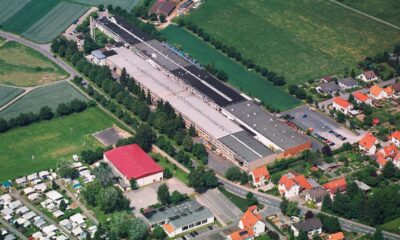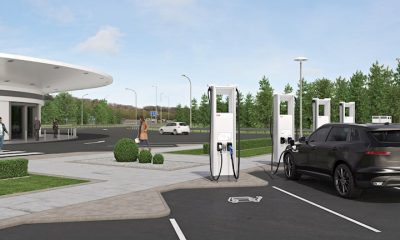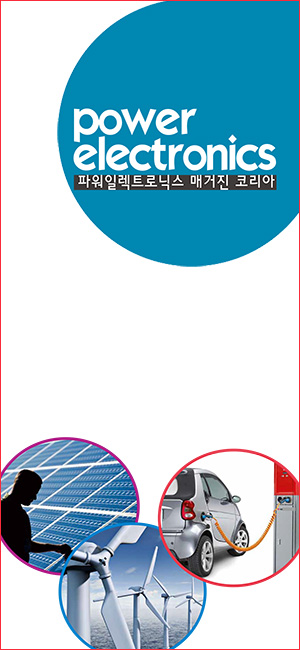EnglishNews
More than half a billion 5G subscriptions by the end of 2021.. Ericsson Mobility Report
5G remains on track to become the fastest adopted mobile generation in history with subscriptions increasing at a rate of about a million per day
5G subscriptions with a 5G-capable device grew by 70 million during the first quarter of 2021 and are forecast to reach 580 million by the end of 2021

Ericsson (NASDAQ: ERIC) projects that 5G mobile subscriptions will exceed 580 million by the end of 2021, driven by an estimated one million new 5G mobile subscriptions every day.
The forecast, which features in the 20th edition of the Ericsson Mobility Report, enhances the expectation that 5G will become the fastest adopted mobile generation of all time, with 3.5 billion 5G subscriptions and 60 percent 5G population coverage forecast by the end of 2026.
However, the pace of adoption varies widely by region. Europe is off to a slower start and has continued to fall far behind China, the U.S., Korea, Japan and the Gulf Cooperation Council (GCC) markets in the pace of 5G deployments.
5G is expected to surpass a billion subscriptions two years ahead of the 4G LTE timeline for the same milestone. Key factors behind that include China’s earlier commitment to 5G and the earlier availability and increasing affordability of commercial 5G devices. More than 300 5G smartphone models have already been announced or launched commercially.
This commercial 5G momentum is expected to continue in coming years, spurred by the enhanced role of connectivity as a key component of post-COVID-19 economic recovery.
North East Asia is expected to account for the largest share of 5G subscriptions by 2026, with an estimated 1.4 billion 5G subscriptions. While North American and GCC markets are expected to account for the highest 5G subscription penetration, with 5G mobile subscriptions comprising 84 percent and 73 percent of all regional mobile subscriptions, respectively.
Mobile subscriptions in the South East Asia and Oceania region have now exceeded 1.1 billion, with 5G subscriptions being just below the 2 million mark. 5G subscriptions are expected to grow strongly over the next few years with a forecast total of about 400 million by 2026. The South East Asia and Oceania region will also see data traffic per smartphone growing at the fastest rate globally, reaching 39GB/month by 2026 – a CAGR of 36 percent. Total mobile data traffic will grow accordingly, with a CAGR of 42 percent, reaching 39EB/month driven by continued growth in 4G subscriptions and 5G uptake in those markets where 5G has already been launched.
Martin Wiktorin, Head of Ericsson Singapore, Brunei and the Philippines, says, “5G will play a critical role in digital transformation for enterprises including SMEs as well as MNCs, while enabling a transformative user experience for consumers. As one of the first few markets in the world to have a 5G SA network, Singapore will benefit from the latest 5G technologies that will enable a variety of advanced use cases. This will range from immersive entertainment experiences, smart city applications, to 5G for business solutions empowering higher efficiency and productivity.”
5G already changing smartphone user behaviour in Singapore
The latest Ericsson ConsumerLab report – Five Ways to a Better 5G – highlights accelerated consumer intent to upgrade to 5G despite the current Covid-19 pandemic. This year, 1 million smartphone users in Singapore are likely to upgrade to 5G. The study shows that 28% of users already own a 5G ready smartphone while still on a 4G plan, indicating a need to address the 5G knowledge gap.
In Singapore, 5G is now driving changes in usage behaviour with 5G triggering first-time usage of enhanced media, cloud gaming and XR. 40 percent of users have started streaming HD videos, while 14-19 percent have increased their usage of AR apps, cloud gaming. 5G users are now spending 3 hours more per week streaming HD videos and 1 hour more on cloud gaming and AR than 4G users. At the same time, 18% of consumers have decreased their Wi-Fi usage after upgrading to 5G.
Today, the Covid-19 pandemic has also fuelled the need for better connectivity indoors. For consumers, 5G indoor coverage at public places has become two times more important than mobile data speed in delivering satisfactory 5G experiences.
The report further finds that speed and need for innovative apps and services are equally important to satisfy early adopters’ 5G experience. Additionally, 18% of consumers are willing to pay 18% more for bundled plans with digital services if high impact “business ready” use cases are commercialized. This includes 5G TV, high-speed cloud, Hi-Fi music, Cloud Gaming, In-venue as well as remote immersive experiences for sports and concerts, which are all likely to persuade consumers to upgrade to 5G premium plans.
According to the report – Five Ways to a Better 5G – the 5G consumer market could be worth USD 31 trillion by 2030 globally, with communications service providers (CSPs) able to secure USD 3.7 trillion of this on the back of 5G connectivity.
This edition of Ericsson Mobility Report includes four feature articles:
T-Mobile pursues a multi-band strategy
Businesses build 5G on Wireless WAN foundation
AI: enhancing customer experience in a complex 5G world
Planning in-building coverage for 5G: from rules of thumb to statistics and AI
Read the latest Ericsson Mobility Report here and the CosumerLab report here.
EnglishNews
ABB E-mobility simplifies payment of electric vehicle charging with Vourity acquisition
ABB E-mobility has enhanced its customer offering with the acquisition of Vourity, a Swedish start-up with award-winning cloud-based technology for payment of EV charging
Swedish fintech start-up’s technology simplifies payment at electric vehicle charging stations

Delivering easy-to-use and seamless payment options for consumers is one of the most critical components in accelerating the adoption of electric vehicles (EV). ABB E-mobility has enhanced its customer offering with the acquisition of Vourity, a Swedish start-up with award-winning cloud-based technology for payment of EV charging.
Vourity’s technology simplifies the driver’s life at the charging station, eliminating the need for numerous phone apps or payment tags. Its technology enables rapid, secure payment for EV charging, using a wide variety of payment options including credit cards, mobile pay and RFID tags. Vourity’s cloud-based solution can be operated through a pay station or directly integrated into the charging station.
“What impressed us most about Vourity’s technology is just how simple and easy it is to use and that’s what we aspire to in our systems, so it’s a perfect strategic fit for ABB E-mobility,” said Daniel Alarcon-Rubio, Chief Digital Officer at ABB E-mobility. “The addition of both the people and the technology from Vourity will strongly enhance and accelerate the development of our own systems and enable us to better serve our customers.”
“Our aim with Vourity has always been to deliver a seamless customer experience at the point of payment. As we evolve from the start-up phase into full commercialization, we are confident that as part of ABB E-mobility we will be able to ramp up our ability to deliver that experience at scale while continuing to develop and improve our technology,” said Hans Nottehed, co-founder and CEO of Vourity.
The addition of Vourity brings a key element to ABB E-mobility’s technology stack, allowing it to integrate seamless payment systems into its customer offering. The acquisition will also bring important technical expertise to ABB E-mobility, with Vourity’s team of Android and fintech experts to play an important role in developing the key payments area of EV charging.
EnglishNews
Continental, German Production Sites in Mobile Fluid Systems Area to be Transformed
Between now and late 2025, Continental will reorganize its German hose sites in Waltershausen, Korbach, and Northeim as well as the Oedelsheim/Hann. Münden production network. In this way, Continental will rigorously align the Mobile Fluid Systems (MFS) business area with the requirements of the automobile and commercial vehicle market, which has been undergoing constant change for several years, while at the same time securing its German production facilities as innovation drivers for the business area. “As a development partner and original equipment manufacturer to the automotive industry, we want to use our material and process expertise in such a way that the business area for automotive hoses and lines is ready to face future competition in the field of e-mobility for cars and trucks,” says Philip Nelles, a member of the Continental Board and head of the ContiTech group sector.
The transformation has accelerated enormously due to the current overall economic and political situation. In addition to overcapacities for rubber hoses for combustion engines, another reason for the reorganization is the high cost pressure and the associated need to secure the competitiveness of its hose business. At the same time, new growth opportunities are appearing. For example, battery and fuel cell vehicles require innovative solutions for hose components and complex line systems for thermal management. “In the future, we want to concentrate on these promising applications,” Nelles says.
Strengthening core skills
Within the business area, Continental researches, develops and produces lines, hoses, and clutches at more than 30 locations worldwide for manufacturers of electric, hybrid and combustion vehicles, as well as trucks and busses. Among other things, its products are deployed for thermal management and emissions reduction.
“Germany is perfectly suited as a location at which innovative products for a changing market can be both developed at our research centers and sent for production nearby,” Nelles adds.
In the coming years, the Waltershausen, Korbach and Oedelsheim sites will be developed into centers of excellence for the manufacture of hose connection applications for the auto and commercial-vehicle industry.
Best possible support for employees
Up to 870 jobs in the MFS business area are expected to be impacted by the realignment. In cooperation with worker representatives, Continental is trying to find individual solutions on the internal and external labor market for employees at affected locations. Internally, Continental is very conscious of enabling as many affected employees as possible to move to other areas within the company.
The in-house Institute for Technology and Transformation (CITT) is offering employees tailored courses, seminars and training for targeted qualification. Continental is also working with other companies in the regions around the impacted sites to support employees in searching for new jobs.
The planned reorganization of the Mobile Fluid Systems business area followed talks with worker representatives with the aim of providing perspectives for the relevant locations.
Continental is already investing in the remaining sites in a targeted manner to give them the best possible foundation and capitalize on the growth potential presented by products and applications for other promising industrial sectors.
Information on the measures decided for the different sites
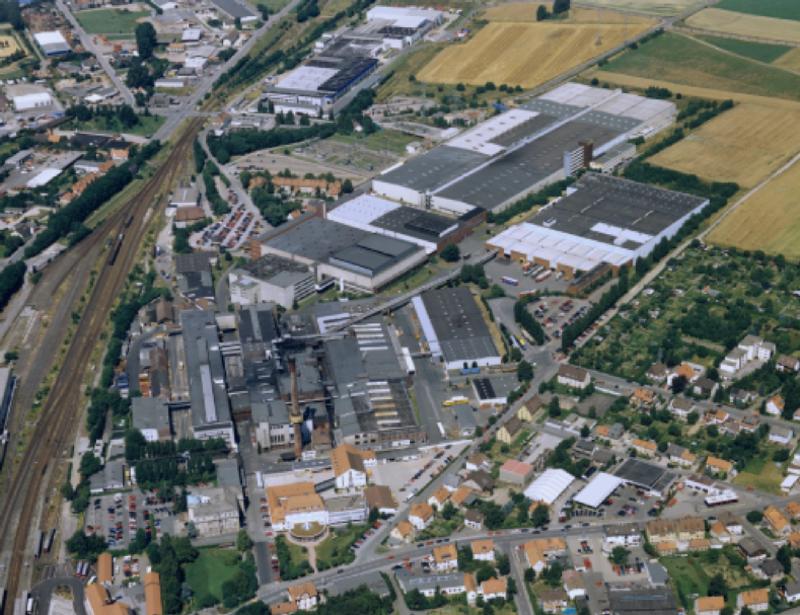
Korbach: Approximately 3,300 people are currently employed at the Korbach site. In addition to a tire plant, three other ContiTech business areas, including MFS, are also located there. The business area is working to further expand expertise in the processing of rubber piece goods. Close ties with the MFS research centers also enhance the business area’s innovativeness. At the Korbach site, Continental is diversifying its product portfolio for applications in various industries, for instance for pump manufacturers. To strengthen its industrial hose business, the company plans to invest EUR 4.5 million in Korbach. Bundled expertise in materials is clearly upgrading the location in the German state of Hesse.

Waltershausen: Waltershausen is what is known as a “zebra location” of the Continental Group. A total of about 1,000 employees produce there for three ContiTech business areas. Among other things, they manufacture rubber compounds, printing blankets for the print industry, manifolds, and air-conditioning hose lines, as well as plastic hoses for the automotive industry. Since 2018, Continental has invested some EUR 8.3 million in Waltershausen. Firstly, approximately EUR 4.3 million was invested in modern mixing technology and additional storage capacity at the site. Approximately EUR 4 million more has been spent on plastic manufacture alone since 2018. Due to the existing expertise, Waltershausen’s role as a center of excellence for plastics processing is being enhanced significantly. As part of the reorganization, air-conditioning hose production will be moved away from Waltershausen. This is expected to affect up to 190 jobs at the site by the end of 2025. At the same time, initial and continuing staff training will continue to be an important building block for the development of the site, which boasts attractive and demanding jobs.

Oedelsheim/Hann. Münden: The previous production network spread across sites 25 kilometers apart is to be merged in Oedelsheim. The sites currently employ a total of about 750 people. Continental will expand the remaining sites in such a way that a significant proportion of the jobs in Hann. Münden can be transferred. Whereas the Oedelsheim site will be underpinned and grow by focusing on silicon manufacture and charge air hoses, the closure of production operations in Hann. Münden will affect a total of about 300-350 of the approximately 560 jobs.

Northeim: In Northeim, more than 1,650 employees currently produce at four ContiTech business areas, including MFS. According to the plans, the manufacture of auto hoses will be phased out by late 2024 due to the technological transformation of the automotive industry. More than 300 jobs are expected to be impacted by the move. The production of conveyor belt systems, elastomer coatings and precision seals as well as molded parts for brakes, steering and axles will remain in Northeim. Approximately 1,350 people will be employed at the site after the measures announced today have been implemented.
In a next step, Continental plans to start a dialog with the respective local employee representatives on the basis of the Framework Social Plan that was approved in March 2022.
-

 Products1년 ago
Products1년 ago에머슨, 수소 연료 전지 수명 연장과 효율 극대화 제공
-
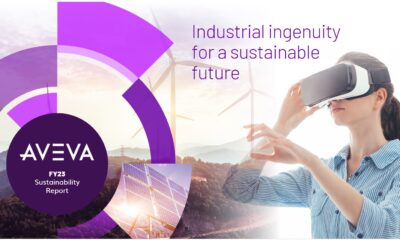
 News8개월 ago
News8개월 ago아비바, ESG 목표 조기 달성, 직간접배출량 93% 감축
-

 News10개월 ago
News10개월 ago현대자동차∙기아 커넥티드 카 서비스 글로벌 가입자 1,000만 명 돌파
-

 News10개월 ago
News10개월 ago현대오토에버, 2023 지속가능경영 보고서 발간
-

 News10개월 ago
News10개월 ago기아, 전기차 배터리 구독 서비스 실증을 위한 MOU 체결
-

 Products10개월 ago
Products10개월 agoST마이크로, 탁월한 안전성 및 신뢰성 지원 GaN 드라이버 출시
-

 News8개월 ago
News8개월 ago스마트카미래포럼, 9월 14일 ‘2023 Future Mobility Forum’ 개최
-

 Global5개월 ago
Global5개월 ago지멘스 모빌리티, 슬로바키아 기술 기업 HMH 인수












